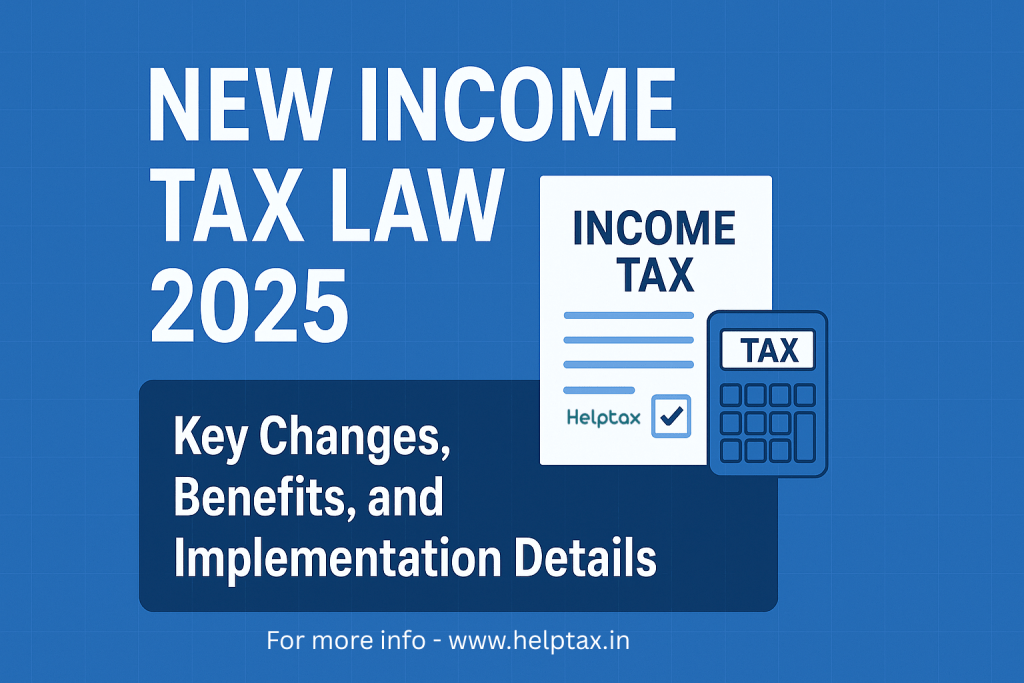New Income Tax Law 2025: Complete Guide to Changes, Benefits, and Implementation
Introduction
The New Income Tax Law is one of the biggest reforms in India’s tax system since the Income-tax Act, 1961. Passed by the Lok Sabha in August 2025, it will come into effect from April 1, 2026. This reform simplifies tax rules, reduces litigation, and makes compliance easier for taxpayers.
What Is the New Income Tax Law?
The New Income Tax Law governs how income is taxed in India. It sets the rules for tax rates, exemptions, deductions, and assessments. Replacing the old Income-tax Act, 1961, it promises a simpler structure and a more transparent process.
Old vs New Income Tax Law
The Income-tax Act, 1961 had more than 800 sections and complex terms like previous year and assessment year. The New Income Tax Law reduces sections to 536, replaces old terms with “Tax Year,” and focuses on digital, faceless assessments.
Key Changes in the New Income Tax Law
-
Simplified Structure – Fewer sections, clearer chapters, and easy-to-read language.
-
Unified “Tax Year” – Removes confusion from earlier terms.
-
High Basic Exemption – Retains ₹12 lakh limit from Budget 2025.
-
Faceless Assessments – Fully digital and transparent.
-
TDS Refund Flexibility – Refunds possible even for late returns.
-
No Alternate Minimum Tax for LLPs – Encourages businesses.
Key Benefits of the New Income Tax Law
-
Easier compliance for individuals and businesses.
-
Lower chances of disputes due to transparent processes.
-
Faster TDS refunds for taxpayers.
-
Business growth with reduced tax burdens.
-
Modern, digital-first approach to tax collection.
When Will the New Income Tax Law Start?
The law takes effect from April 1, 2026 for Tax Year 2026–27. Until then, the 1961 Act remains in place.
Conclusion
The New Income Tax Law is designed to simplify India’s tax framework and create a fairer, more transparent system. Taxpayers should prepare now to take advantage of its benefits once it starts in April 2026.
Income Tax Return – File Here


